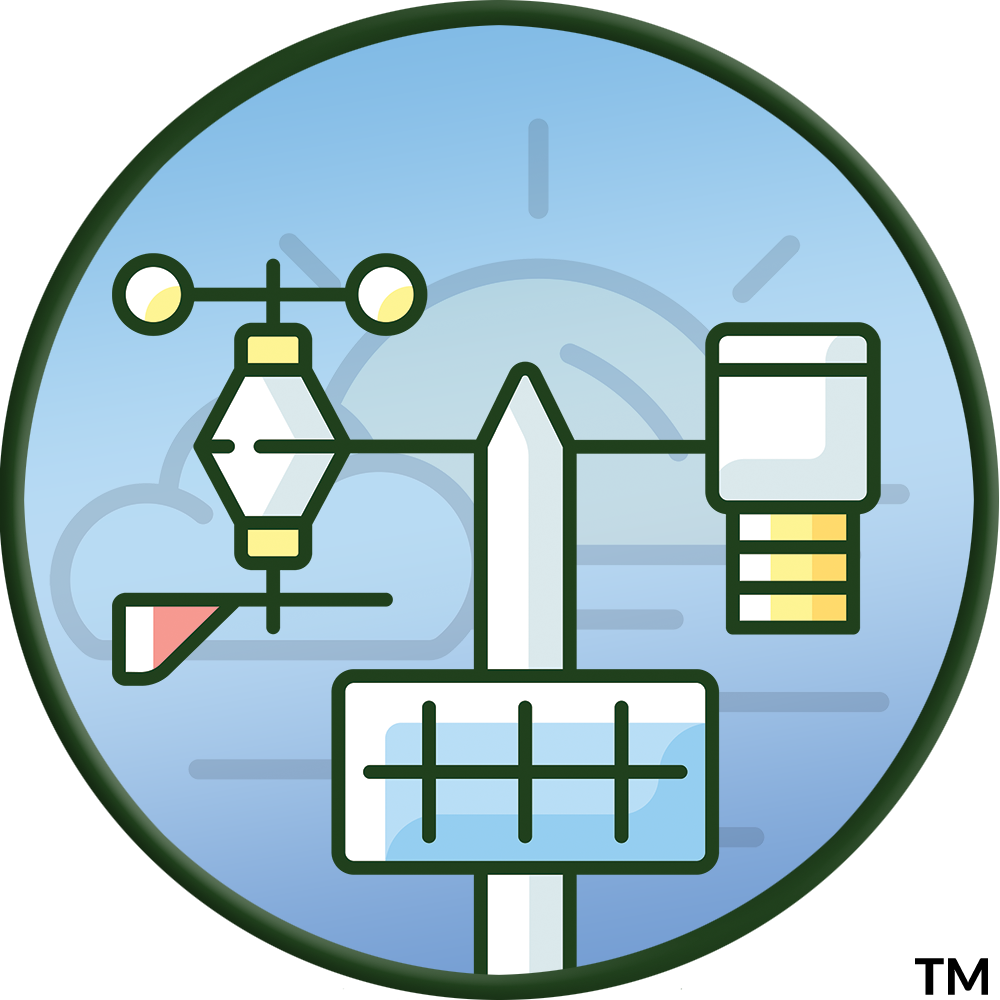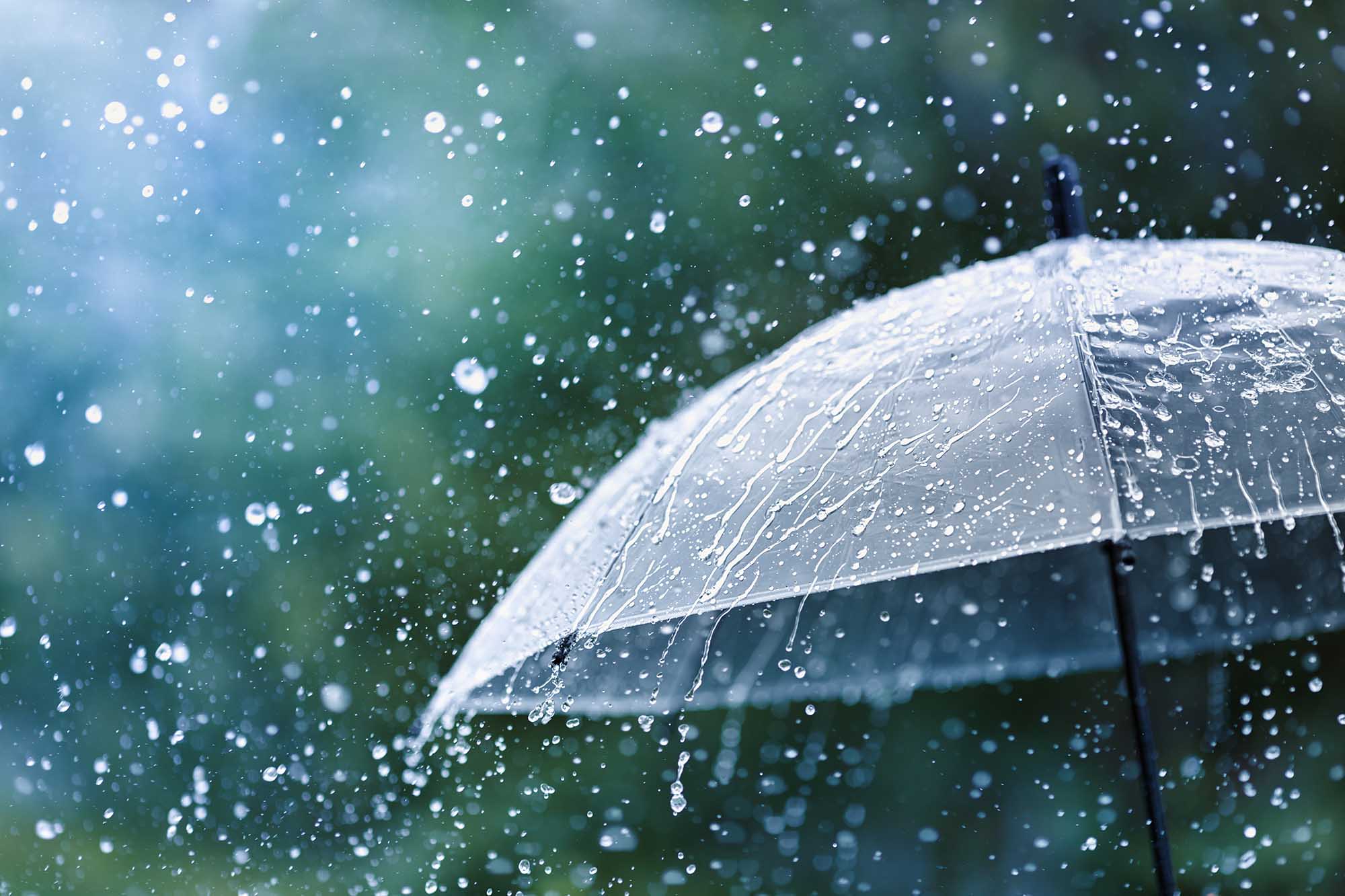What is weather? Learn about meteorology here!
What is weather? You’ve come to the right place. Here, you’ll find answers to common weather questions we hear from readers and valuable (and fact-verified) content for teachers, educators, or just those looking to expand their weather knowledge! We’re constantly posting new educational content, so keep checking back frequently!
Do you have an idea for something we should cover? Are you a teacher or educator teaching Earth Sciences in the classroom? Send us a message!
Free Infographics
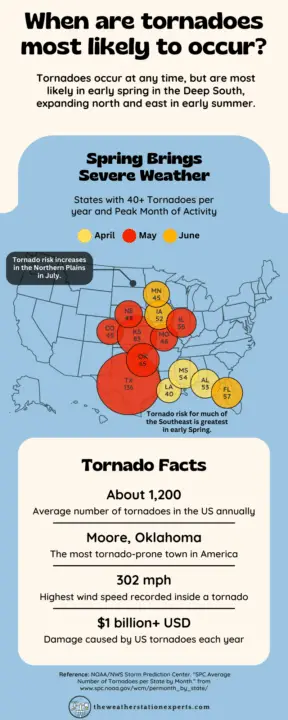
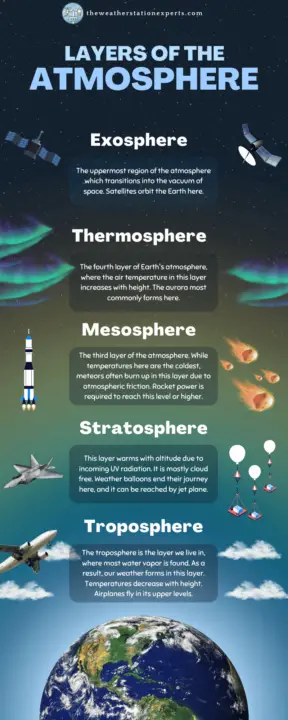
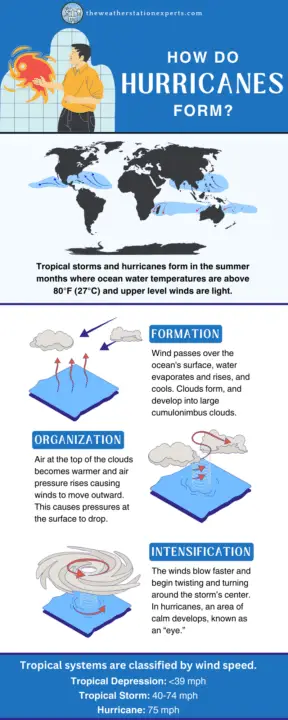
You can find more of our educational weather infographics here, which are free for subscribers!
Weather Glossary
Related Videos: Weather Glossary
How Tos
Related Videos: How To
Weather Warnings
Related Videos: Weather Warnings
What is weather?
Weather, in general terms, is the state of the atmosphere at a specific place and time. Weather changes over time due to various day-to-day or seasonally based influences. We see the weather all around us every single day! Depending on your location, you will experience different weather conditions throughout the year.
Weather is usually described by changes in humidity, air pressure, temperature, precipitation (rain or snow), visibility, and wind speed. Conditions vary depending on your location—whether it be an urban environment with many buildings or trees blocking certain winds or a large open field without obstructions where you might experience different weather.
What is the difference between weather and climate? Learn about the difference here!
Related Videos: Educational Videos
Weather can have a large impact on our daily activities—whether you are planning an outdoor activity for the weekend or if your plans change because of high winds or rain in the forecast (and it would be unsafe to do certain things). There is also global weather that can affect thousands of people at once! For example, a hurricane or heavy snowfall will affect many people.
Weather is enjoyable to study, and there are different types of meteorology (the scientific term for the “study of weather”). Weather changes every moment—around us, above and below us! It can be sunny for one second and rainy for the next without warning.
Can I forecast the weather myself?
Yes, you can forecast the weather yourself! There are different ways of doing it – whether you use a home barometer or an app on your phone. Based on that information, you will need to know how to interpret each measure and then determine what conditions might be like (Do I need to bring an umbrella? Will it be sunny out for my bike ride?). One way to do it is by purchasing a weather station.
Why are weather stations important?
We communicate the weather through measurements: temperature, humidity, winds, and so on. A weather station measures these things.
Weather is also variable, even across small distances. The more weather stations in an area, the better the picture meteorologists have of what the weather is doing locally.
Is meteorology challenging to learn?
Like any science, meteorology is a complex subject. To do well, you need a solid science and math background, especially in physics and calculus.
However, you don’t have to study meteorology to appreciate the science. There are abundant resources out there to learn about how the weather works. That’s why we thought a section devoted to helping you understand the weather would be helpful.
Other Resources We Like
We also wanted to share other resources to help you learn what weather is and how it affects our daily lives. Here are our favorites:
- Weather.gov – Basic Weather Education
- UCAR – What is Weather?
- COMET MetEd
- National Weather Service – Educational Resources
Good luck in your weather journey, and a warning – it’s addictive!

